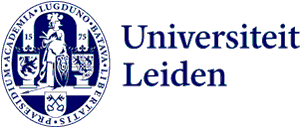ESOF 2022: Tax justice in Europe and beyond
On the occasion of Euroscience Open Forum 2022, Professor Attiya Waris (Director of Research and Enterprise and Professor of Fiscal Law and Policy in Eastern Africa, University of Nairobi, Kenya), Professor Irma Mosquera Valderrama (Professor of Global Tax Governance, Lead Researcher GLOBTAXGOV ERC Funded Project, EU Jean Monnet Chair Holder EUTAXGOV and Dean of PhD Studies, Tax Law Department, Leiden Law School, Leiden University) and Frederik Heitmüller (PhD Candidate ERC Funded Project GLOBTAXGOV) came together in an online lecture to discuss tax governance and tax justice in Europe and especially beyond Europe.
Professor Attiya Waris started the lecture by introducing some of the concepts and topics within her research on tax justice. According to Waris, strong principles surrounding tax are extremely important for a nation to have tax justice. The issue of tax justice is also becoming present between nations and States. Inequality between nations is increasing and they are starting to exclude each other from different systems. She also stated that tax injustice also hurts human rights within that nation. Thus, she concluded that international coordination, cooperation, and assistance are needed to improve tax justice and that nations should look at tax collection through a human rights lens.
Leiden Law School @ESOF 2022
Due to the selected cookie settings, we cannot show this video here.
Watch the video on the original website orThen, Frederik Heitmuller continued the lecture by introducing his research on the base erosion and profit sharing (BEPS) minimum standards and the EU list of non-cooperative jurisdictions. This research aims to tackle tax fraud, evasion, and avoidance and to address external challenges to EU countries’ tax bases. Heitmuller stated that there is a mismatch between these objectives, the BEPS minimum standards criterion, and defensive tax measures. He concluded that compliance with BEPS 1.0 can be removed from the criteria of the list of non-cooperative jurisdictions (except for criteria related to the exchange of tax rulings).
Lastly, Professor Irma Mosquera Valderrama presented her research on the EU standard of tax good governance and what developing countries are facing in the case of tax justice. The EU plays a crucial role in the formation of tax governance, but it is proving very difficult to take joint action against tax avoidance and harmful tax competition. The standard for this is to improve international tax cooperation and facilitate the collection of legitimate tax revenues, promote fair taxation and support BEPS in the single market and internationally. However, this standard is implemented differently per country. In her research, Mosquera Valderrama illustrates how this standard for good governance in tax matters in the EU is constantly developing.
